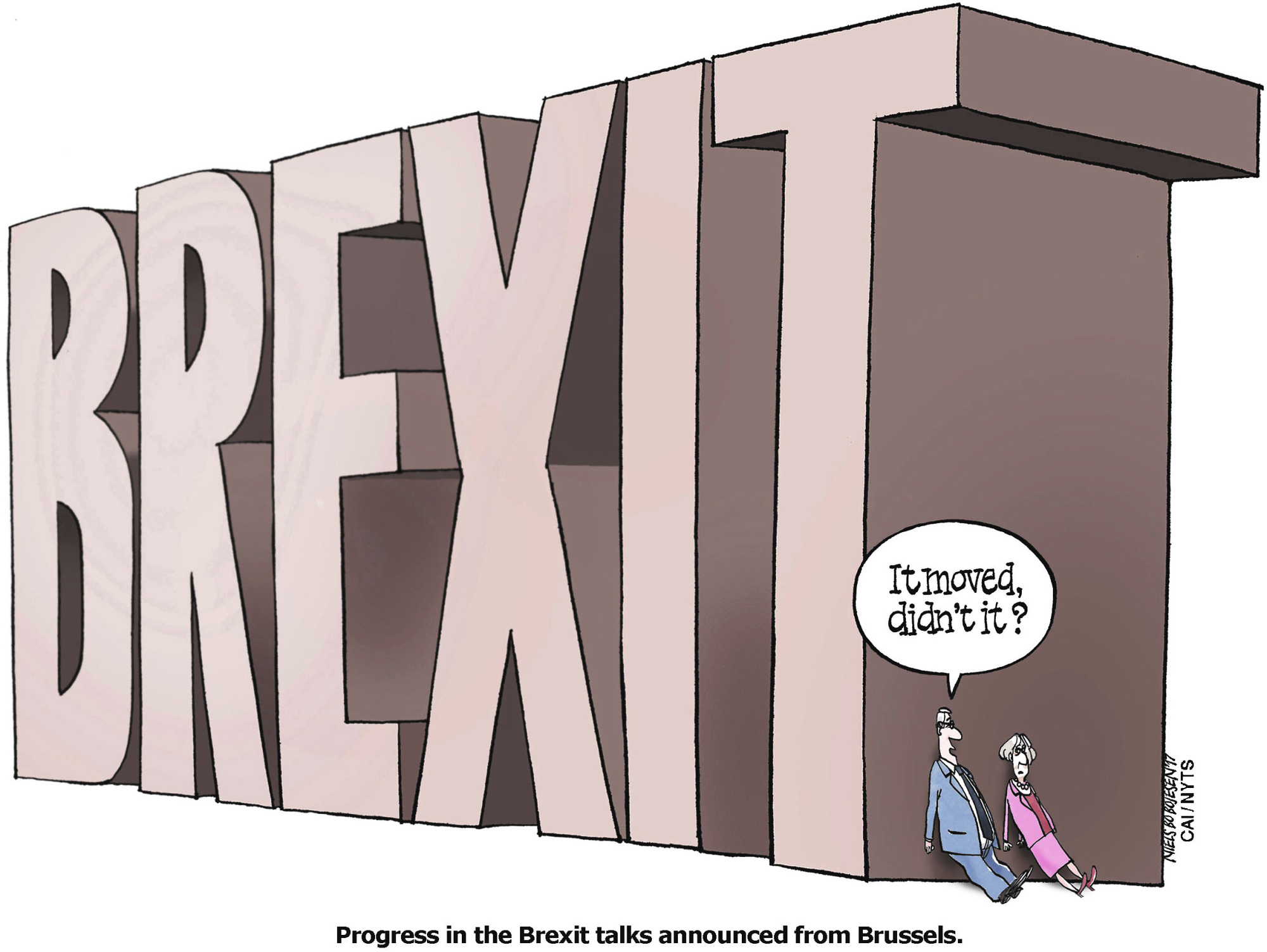After a night of negotiating drama, the three trickiest and most immediate issues in the process of Britain leaving the European Union treaties have been settled — as, given a bit of goodwill, they were always predicted to be (see this column on Aug. 22).
The rights of EU citizens residing in the United Kingdom have been assured (as have those of U.K. citizens on the continent); the finances of the so-called divorce have been agreed, and spread reasonably over many years ahead; and despite much media excitement and some political maneuvering, the apparent need for a new border between the Republic of Ireland (in the EU) and the province of Northern Ireland (in the U.K.) has been found to be avoidable. Physical borders like the Irish one, it turns out, can nowadays be largely replaced by online checks and permits and a good dose of practical common sense.
So far so good, but what comes next? Discussions are now scheduled to begin on the precise arrangements for continued and smooth flows of trade and exchange between the member states of the EU and the whole of the U.K. after March 2019, when the U.K. officially withdraws from the main EU treaties.


















With your current subscription plan you can comment on stories. However, before writing your first comment, please create a display name in the Profile section of your subscriber account page.